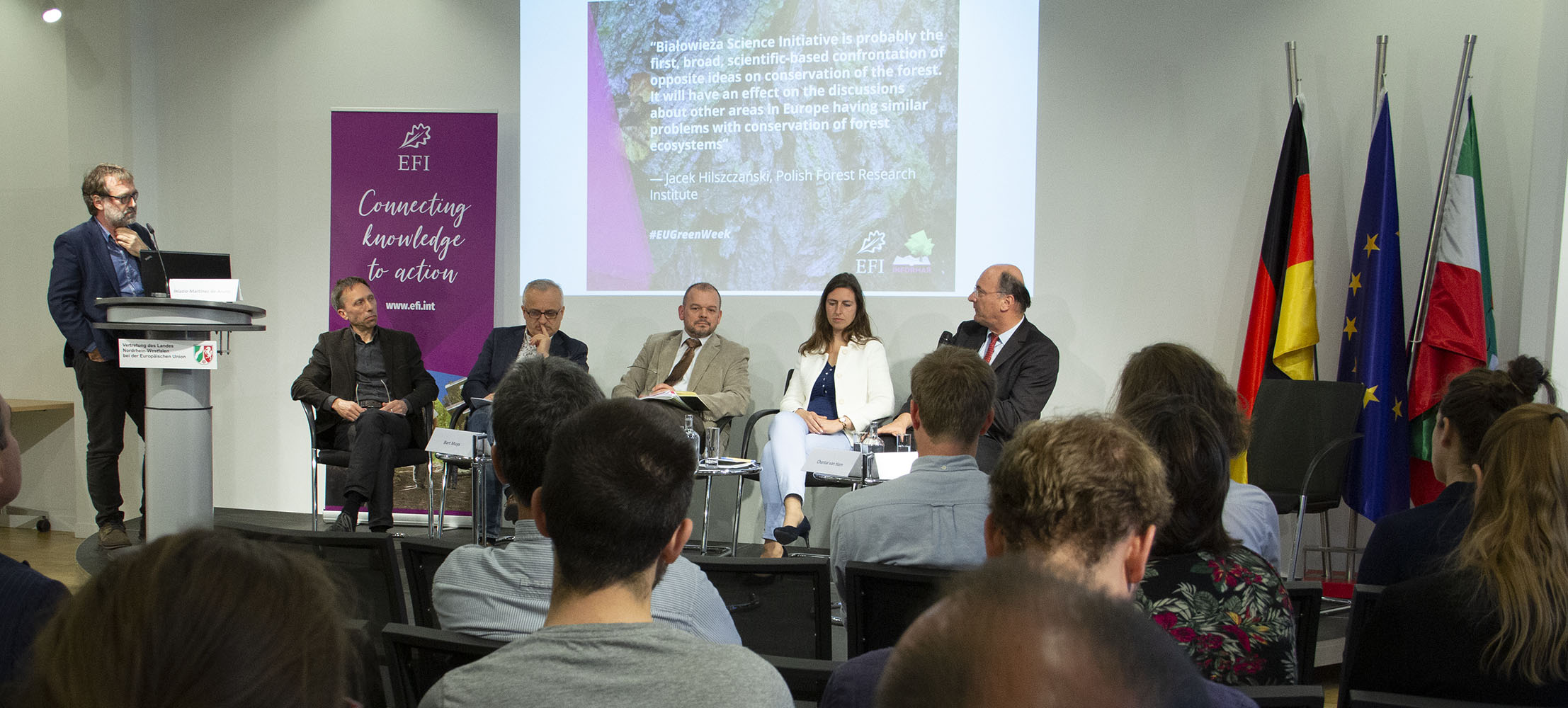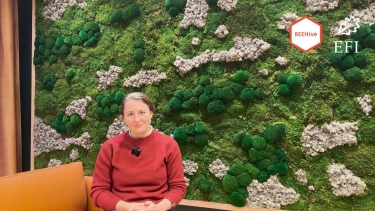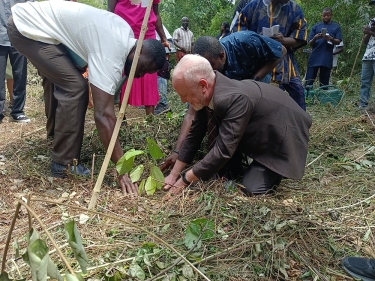What we can learn from the conflict over the Białowieża Forest
Brussels, Belgium (15 May 2019) An international research team under the coordination of the European Forest Institute, in collaboration with the European Network Integrate, presented to the public and media the findings of the Białowieża Science Initiative (BSI), a science-based evaluation of the Białowieża Forest conflict. The presentation was followed by a public debate between scientists and policy stakeholders on lessons learnt for forest management and conservation in Europe.
The need to protect the forest is unquestionable, say the researchers. The main controversy is how to do it.
The Białowieża Forest, on the border between Poland and Belarus, is known worldwide for its high conservation value. It was designated a UNESCO protected site in 1976 and since then the protected area has gradually increased. It is also known for a history of controversy over conservation and forest management.
Recently, an outbreak of European spruce bark beetle triggered increased salvage and sanitary logging. This intensified the conflict among different groups of stakeholders: forest managers, conservationists and the general public, as well as policy makers at different levels. The logging raised many questions on forest management and biodiversity conservation, for example, on the effectiveness of sanitary cuttings, the management of natural disturbances, the consequences of climate change and the prioritization of protected species. The conflict revealed opposing viewpoints on forest biodiversity protection and had a significant impact on the overall perception of forestry and nature conservation in Poland and beyond. It resulted also in a decision by the European Court of Justice against Poland to cease active forest management operations in the forest.

The Białowieża Science Initiative gathered more than 20 renowned scientists from various disciplines, and with distinct perspectives on the conflict, for an independent assessment of the scientific evidence relating to key aspects of the controversy. The assessment covers forest history, socio-economic factors, governance, ecology and disturbances to evaluate diverging perspectives on appropriate management.
“If an issue is as contested as in the case of the Białowieża Forest, there are usually also controversies amongst scientists. One main motivation for us to initiate the Białowieża Science Initiative was to make scientists with diverging views speak with each other, to identify consensus and dissent points, solely based on scientific evidence. Such an academic debate cannot resolve the conflict, but it can help decision makers to better see where there is non-contested evidence, and where issues remain controversial also amongst scientists”, said Georg Winkel, Head of EFI Bonn Office.
Jacek Hilszczański, Director of the Polish Forest Research Institute, said: “The Białowieża Science Initiative is probably the first, broad, scientific-based confrontation of opposite ideas on conservation of the forest. It will have an effect on the discussions about other areas in Europe having similar problems with conservation of forest ecosystems.”
The role of science is to describe the reasons for differences and clarify which arguments in the debate are based on empirical evidence and which are more of a personal character.
“This initiative was an exciting exercise illustrating the unifying power of bringing people together in a suitable on-field context with a few simple dialogue rules. The initiative showed the strong points of divergence in mindsets and backgrounds between foresters and conservationists, but also their complementary elements of knowledge to manage the Białowieża Forest in the best possible way,” said Bart Muys from the University of Leuven.
The BSI findings point out that while science may help to make the different arguments transparent, the actual decisions are connected to values and interests. “To me, the key message of this initiative is that while scientific knowledge is an important prerequisite for meaningful debate in case of environmental conflicts, it is not sufficient. I certainly hope that our paper can be an eye-opener for decision-makers who have to deal with environmental conflicts. The paper clearly illustrates the breadth of issues that need to be considered when seeking solutions”, said Malgorzata Blicharska from the Uppsala University, lead author of the paper.
One possible measure to depolarize the conflict, and rebuild trust between different policy actors, the team of scientists concluded, may be a well-organized participatory negotiation process. Such a process should bring together different scientists and representatives of various groups of society, keeping in mind the multiple facets of the conflict and the different governance levels.
Download policy brief.
More information
The Białowieża Science Initiative is part of the INFORMAR project, managed by the European Forest Institute (EFI) Resilience Programme and supported and funded by the German Federal Ministry for Food and Agriculture (BMEL). This event is an official Partner Event of the EU Green Week.


